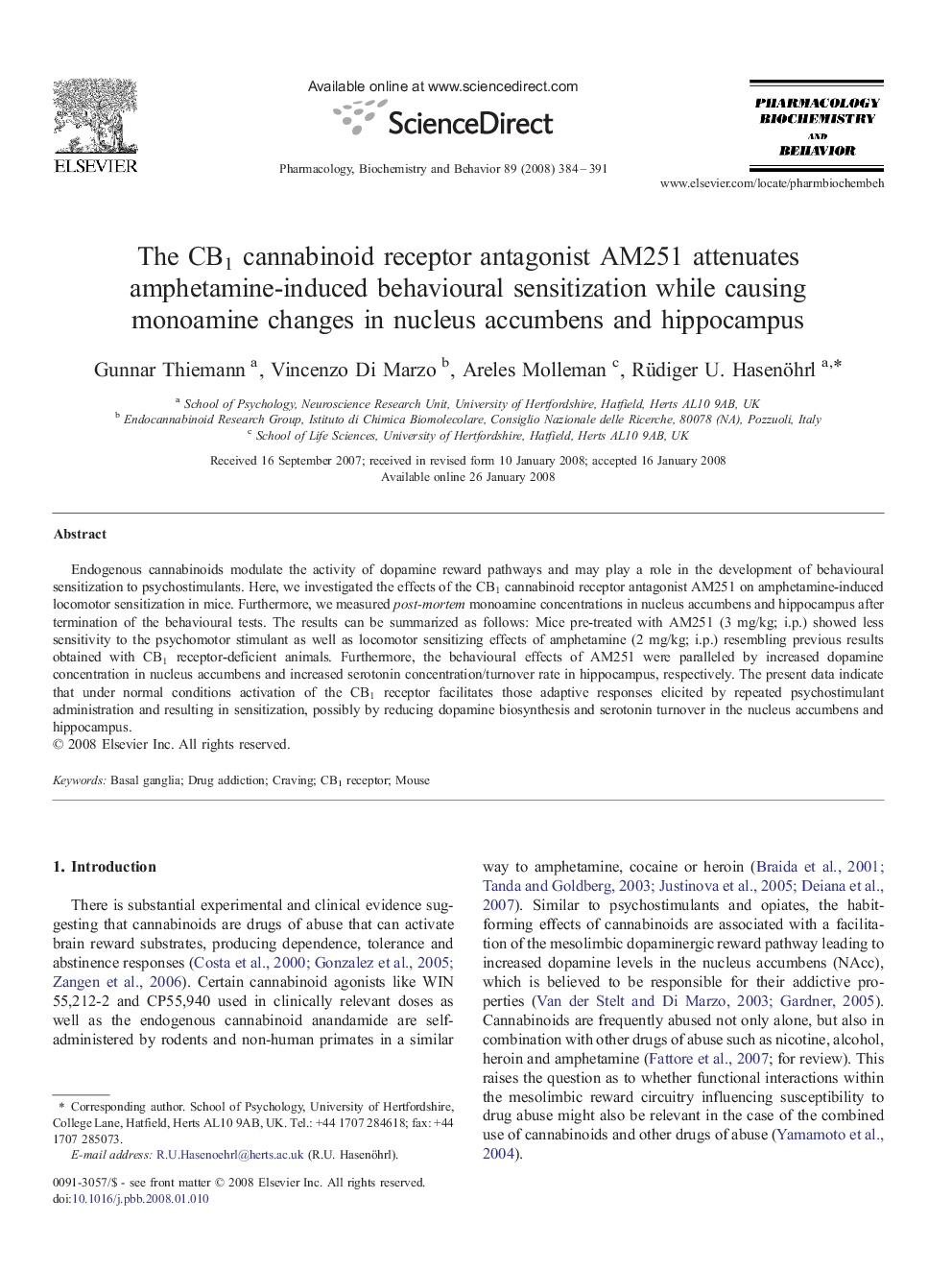| Article ID | Journal | Published Year | Pages | File Type |
|---|---|---|---|---|
| 2013858 | Pharmacology Biochemistry and Behavior | 2008 | 8 Pages |
Endogenous cannabinoids modulate the activity of dopamine reward pathways and may play a role in the development of behavioural sensitization to psychostimulants. Here, we investigated the effects of the CB1 cannabinoid receptor antagonist AM251 on amphetamine-induced locomotor sensitization in mice. Furthermore, we measured post-mortem monoamine concentrations in nucleus accumbens and hippocampus after termination of the behavioural tests. The results can be summarized as follows: Mice pre-treated with AM251 (3 mg/kg; i.p.) showed less sensitivity to the psychomotor stimulant as well as locomotor sensitizing effects of amphetamine (2 mg/kg; i.p.) resembling previous results obtained with CB1 receptor-deficient animals. Furthermore, the behavioural effects of AM251 were paralleled by increased dopamine concentration in nucleus accumbens and increased serotonin concentration/turnover rate in hippocampus, respectively. The present data indicate that under normal conditions activation of the CB1 receptor facilitates those adaptive responses elicited by repeated psychostimulant administration and resulting in sensitization, possibly by reducing dopamine biosynthesis and serotonin turnover in the nucleus accumbens and hippocampus.
